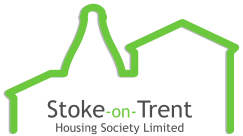Looking after your home
There are lots of things that you can do to make sure that your home is safe and comfortable.
Home Contents Insurance
Why do I need it?
As your landlord we cover the buildings insurance for your home but you’re responsible, under the terms of your tenancy, for insuring your contents. It’s always a good idea to shop around for a policy that’ll give you the cover you need.
Home contents insurance isn’t compulsory, but it’s a good idea to consider what a policy would cover you for. Home contents insurance can help protect your possessions from risks like fire, theft, water damage, and many more household risks, giving you peace of mind.
What does contents insurance cover?
Thistle Tenant Risks and Great Lakes Insurance UK Limited, offer the My Home Contents Insurance Scheme, designed specifically for residents in social housing, all our residents are eligible to apply. This policy can cover:
Furniture, Carpets, Curtains, Clothes, Bedding, Electrical items, Pictures, Ornaments.
Limits and exclusions apply. For more information about our policy, please refer to the Insurance Product Information Document (IPID) and Policy Wording.
New! Buy online with monthly Direct Debit
It’s now easier for you to get covered with the My Home online platform. You can now purchase your home contents policy online when paying monthly via direct debit, please note paying by direct debit is more expensive than other payment options
For more details or to get started, you have a few options:
Call Thistle Tenant Risks: 0345 450 7288
Visit the website: www.thistlemyhome.co.uk to learn more or request a call back here www.thistlemyhome.co.uk/call-back.
Buy Online: Visit www.thistlemyhome.co.uk to purchase your policy and set up monthly direct debit payments for added convenience.
Be secure – by locking your doors and windows when you go out. Make sure that tools and ladders are securely locked away and never leave keys in a ‘secret’ hiding place.
Smoke Alarms – should be checked at least once a month to make sure it is working properly. You can do this by pressing and holding the test button until the alarm sounds.
Electricity – You need to know where your fuse box and mains switch are so you are prepared if your electric supply goes off. Always keep a torch handy in case it’s dark when this happens. If your electric goes off a switch will trip in your fuse box and you will need to re-set it. If it continues to trip this could be due to a faulty electrical appliance. Unplug all your appliances from their sockets and then plug in each appliance one at a time and switch it on. This way, if the fuse blows again you’ll know if you have a faulty appliance. If you can’t find a fault with your fuse box, check with your neighbours to see if there’s been a power cut.
Water – Find out where the stopcock is (it’s usually located where the water supply enters your home) and test it regularly to make sure it works. You do this by turning it off and running the cold tap in the kitchen. The tap should stop running almost immediately. If it doesn’t, report the problem to us. If there’s a leak or burst pipe you should shut off the water supply to your property.
Radiators – If the top part of your radiator is cold, this may be because air is trapped. Bleeding the radiator will release this air and allow hot water to fill the radiator. Put the bleed key over the bleed valve, holding a cloth underneath to catch any water. Turn the key anti-clockwise and you will hear a hissing noise – this is the air being released. When the hissing stops and water starts to appear, turn the key clockwise and close the valve tightly. Never unscrew the valve completely.
Condensation – can cause mould growth in your home. Too much moisture and not enough ventilation will result in condensation. Get rid of condensation by giving your home a good airing first thing in the morning, open windows and don’t dry washing directly on radiators. Control steam created in your kitchen or bathroom by opening a window or using extractor fans if you have them.
Blocked Drains – we all use oils and fats for frying and roasting. It also drains out of meat when we’re cooking it – DO NOT POUR IT DOWN THE DRAIN. Many fats are liquid when hot but turn to gooey gloop on contact with cold drains. They will congeal and eventually block the drains! Dispose of oils and fats in your bin or food caddy or pour your oils into old bottles and take them to your local recycling center where they can be turned into clean fuels or disposed of sensibly.
Toilets – cope with lots of waste every day and are designed for the removal of liquids and bodily waste. Many call-outs for blocked drains turn out to be preventable. They are caused by people attempting to flush things down the toilet that should be disposed of in the bin. Here are the main offenders that you should NOT be flushing down your toilet: Baby Wipes, Sanitary Towels, Nappies, Cotton Wool, Cat Litter and Rags and Towels.
